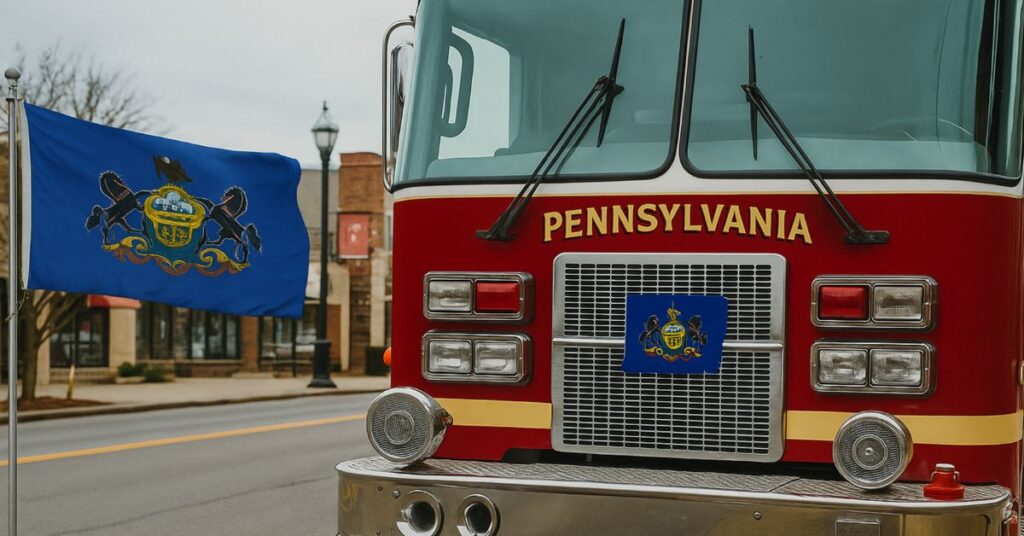Pennsylvania’s new budget cycle just started with positive news for the State’s first responders: thanks to Tax Act 54, boroughs and townships will finally be authorized to raise their upper limits for fire taxes.
Taxation updates rarely make front-page coverage, but in this case, their impact may be seen in the headlines we’ll never see. As Act 54 brings an influx of funds to PA’s largely volunteer firefighting force, legislators may have directly helped hundreds of Pennsylvanians who request emergency assistance.
What is Act 54 Proposing?
Act 54 aims to expand the authority of Pennsylvania municipalities to levy taxes dedicated specifically to fire and emergency medical services (EMS).
The act will ease funding restrictions for over 1,400 municipalities. For 150 different boroughs around Bucks, Delaware, and Montgomery Counties, the Act will double the amount of money they can raise to fund emergency services. At smaller townships, it will come as a huge relief for overburdened departments, although it may not fully cover their rising operational costs.
Either way, most affected jurisdictions will now have some breathing room for equipment, training, staffing, and infrastructure.
Why the Change is Needed
The overwhelming majority of fire departments across the state, 96.5% of them, are staffed largely by volunteers. In many smaller towns and rural areas, fire departments may only keep a handful of permanent career positions. However, almost all emergency calls are addressed by volunteers, who may be juggling a separate job or family life.
This helps keep costs low, which is a necessity for most jurisdictions, which usually fund their services from the local General Fund (which must also pay for other local services) or through special real estate taxes.
Until last year, state regulations capped these levies at 3% of the property’s ongoing value. Yet, funds raised through such special taxes came with two caveats: first, they had to be earmarked exclusively for Fire or EMS services. Second, the total amount raised could not surpass 3 million for fire departments, or 500,000 for EMS services.

In addition to being arbitrary, these limits ignore the close operational relationships that link ambulances and fire response services.
In many rapidly growing areas, such as Northampton Township, the Act will help address the persistent underfunding of EMS and fire services. There, the previous caps meant that less than a third of the fire department’s expenses could be covered using tax money.
For many other similar jurisdictions, budget constraints have taken local Fire Departments to a crisis point: hiring decisions and routine maintenance are often held off until state or federal funds are secured on an “emergency” basis.
Political and Public Response
Although the changes introduced by this bill are already being lauded by Fire Chiefs across Pennsylvania, the truth is that any changes are far from secure. As of July 2025, the bill remains under debate in the Pennsylvania General Assembly. Until the Assembly reaches a decisive consensus, the project runs the risk of being lost amidst external political pressure.
Meanwhile, some residents and watchdog groups are already raising concerns about potential tax increases. Whether due to ideological beliefs or fear of the rising cost of living, many voters are automatically opposed to any initiative that further elevates property taxes.
This is why it is essential for advocates to mobilize quickly: both voters and representatives must understand that life-saving services require priority. Without the funding provided by the act, some local departments may have to shut down, which will inevitably result in lost lives.
What the Act Means for Fire & EMS Departments
Once approved, the legislation could create more stable, recurring funding for many towns around the State. Rather than wait for one-off federal grants or exceptional funding, they will have access to a recurrent income.
This can prove invaluable when strengthening Fire Stations, especially in rapidly growing areas. With predictable cash flow, stations will be able to:
- Plan ahead for remodels and equipment updates.
- Provide scheduled maintenance to existing equipment.
- Offer more permanent positions and long-term contracts for their career staff.
- Implement new programs to recruit and retain firefighters.
Why the Firefighters and EMS Fund Supports Tracking This Legislation
At Firefighters and EMS Fund, our mission is to help create better working conditions for firefighters and emergency medical responders across the country. One of our main strategies to achieve this is to ensure any local efforts to raise funding receive the attention and coverage they deserve.
Public awareness of the fiscal policies that impact local safety will help citizens understand the full scope of what is at stake with every distress call, from the dangers faced by responders themselves to the costs associated with operating and maintaining an efficient fire truck.
Do you live in Pennsylvania? Is there a similar initiative in your area? Then it’s time to get involved in any public hearings or referenda around you. By supporting firefighters, you will help them save lives!







